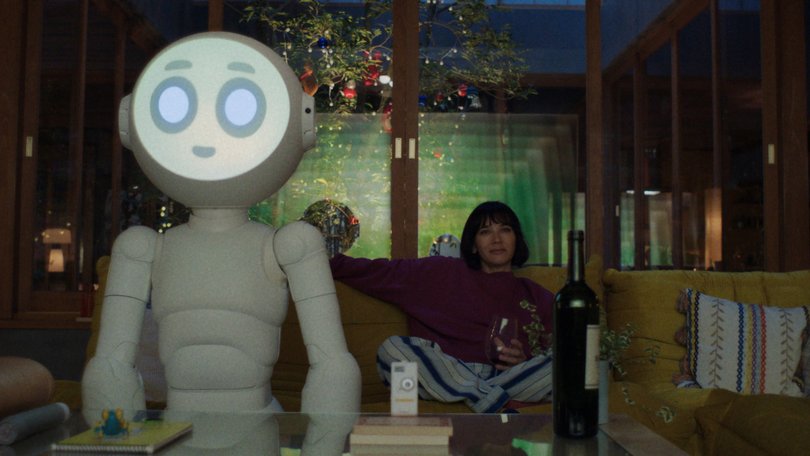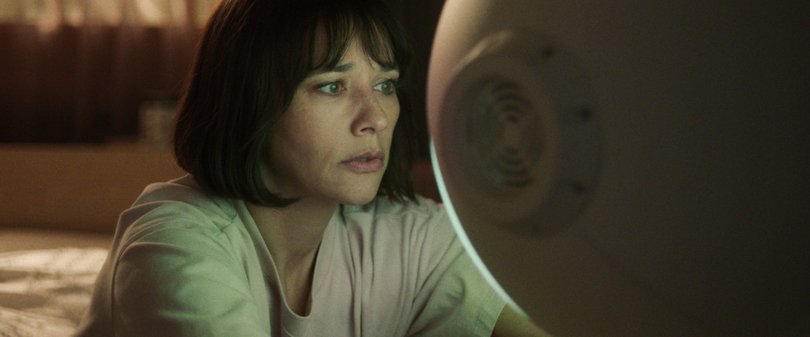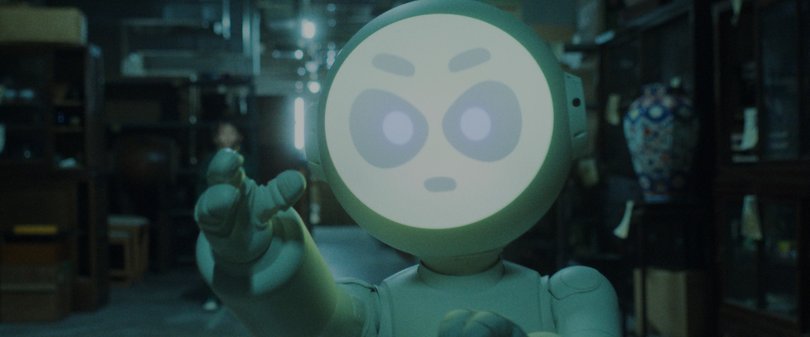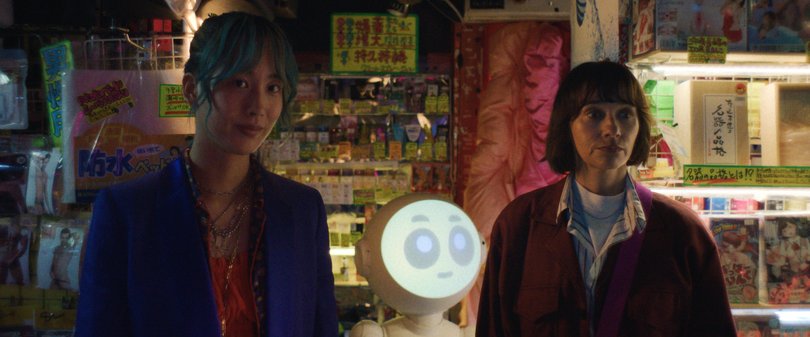Sunny review: Rashida Jones’s twisty TV mystery delights and puzzles
Parks and Recreation’s Rashida Jones is the lead in this mystery about grief, isolation and killer robots. It has everything.

A TV series about a grieving woman whose husband and son are missing after a plane crash, and then going through that process with a robot she distrusts, stumbling into a crime plot involving a gang and a secret hacker network sounds like a lot.
It might be the kind of show that makes you go, “Oh noes, too much”. But Sunny, despite its labyrinthine story, is such a good show.
It’s emotionally complex, tonally chilling and quirky, is incredible to look at, and features a stellar performance from Rashida Jones.
Sign up to The Nightly's newsletters.
Get the first look at the digital newspaper, curated daily stories and breaking headlines delivered to your inbox.
By continuing you agree to our Terms and Privacy Policy.And the mystery at the centre of it is intriguing with undertones of Alfred Hitchcock, which it slyly references in its animated opening credits.
Suzie (Jones) is an American living in picturesque Kyoto. She married a Japanese man, Masa (Hidetoshi Nishijima) she met at a ramen shop, and had a son by him, Zen. When the series starts, Suzie is bereft after Masa and Zen’s flight to Hokkaido goes down and they are declared missing.

Overcome with grief and numbness, the only person she seems to know in Japan is Noriko (Judy Ongg), her disapproving and passive-aggressive mother-in-law. Dyslexia has meant Suzie never picked up Japanese and gets by on a translator earbud.
Not long after Masa’s disappearance, his colleague shows up at her door with a “homebot”, an AI robot named Sunny whose digital face is a smiley countenance and whose retro round body suggests it’s as harmless as WALL-E.
But we know something is up because the opening sequence is flashes of a death-by-robot frenzy. Suzie doesn’t want Sunny. She doesn’t trust AI, partly because her mother was killed in an accident with a self-driving car.
As it’s said in the series, “robots are expressions of their creators”, and if Sunny reflects on Masa, then Suzie is tangled in how she feels about it.
But when weird things start happening, Suzie is forced to use Sunny to discover why Masa had programmed this robot for her, what was his connection to the Yakuza and is there really a killer robot conspiracy?

Sunny is billed as a dark comedy but it’s really more of a drama with funny elements, including physical comedy and off-beat vibes. There’s a deadpan-ness and formality to it that complements its story about grief.
For some, that experience is more distancing than wallowing.
Jones first gained notice as part of the ensemble of David E. Kelley’s teaching drama Boston Public and has had a range of mostly supporting roles since, most notably as Leslie Knope’s best friend Ann in Parks and Recreation.
She has excellent comedic timing, which has seen her cast in the likes of The Office, Our Idiot Brother and the underrated cop comedy Angie Tribeca.
But she has rarely been given the opportunity to really stretch her dramatic muscles. The lowkey rom-com Celeste and Jesse Forever, which she co-wrote and starred in with Andy Samberg, was an exception.
Sunny is a showcase for Jones. Suzie is a lonely person but not just in this post-loss state. She hasn’t felt comfortable in her world for a long time, if ever. It’s not just that she’s a foreigner in a rigid culture, there’s something about her past and personality that keeps her aloof.
When she is forced to work with others to survive an increasingly perilous situation, which in addition to Sunny, is a bartender she meets named Mixxy (Annie the Clumsy), she has to shake herself out of her stupor.

Nishijima, who was in the superb Drive My Car, is playful and enigmatic, slightly removed from the audience as Suzie plunders her memories to try and understand a husband who definitely kept some secrets.
Sunny is less interested in the relationship between humans and technology than some other AI-led stories. It’s more about the human connections, and the robot stuff is there as a conduit to the mystery of how Suzie’s life went tits-up.
It’s a handsome series that’s more in control of its diverging strands than Suzie is of her situation, and one of its notable achievements is a stunning production design that incorporates traditional and modern Japanese aesthetics with retro-futuristic touches to hint at a setting more advanced than ours.
There’s a lot to like in Sunny, which keeps things moving along without being unwieldy.
Sunny is on Apple TV+

